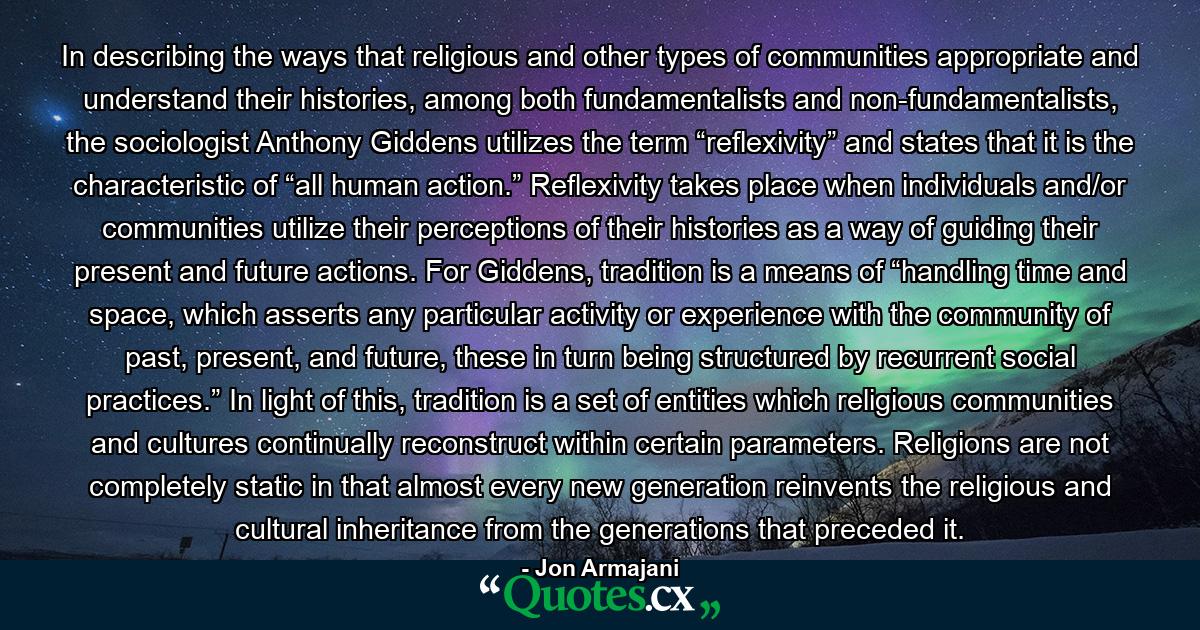In describing the ways that religious and other types of communities appropriate and understand their histories, among both fundamentalists and non-fundamentalists, the sociologist Anthony Giddens utilizes the term “reflexivity” and states that it is the characteristic of “all human action.” Reflexivity takes place when individuals and/or communities utilize their perceptions of their histories as a way of guiding their present and future actions. For Giddens, tradition is a means of “handling time and space, which asserts any particular activity or experience with the community of past, present, and future, these in turn being structured by recurrent social practices.” In light of this, tradition is a set of entities which religious communities and cultures continually reconstruct within certain parameters. Religions are not completely static in that almost every new generation reinvents the religious and cultural inheritance from the generations that preceded it.
